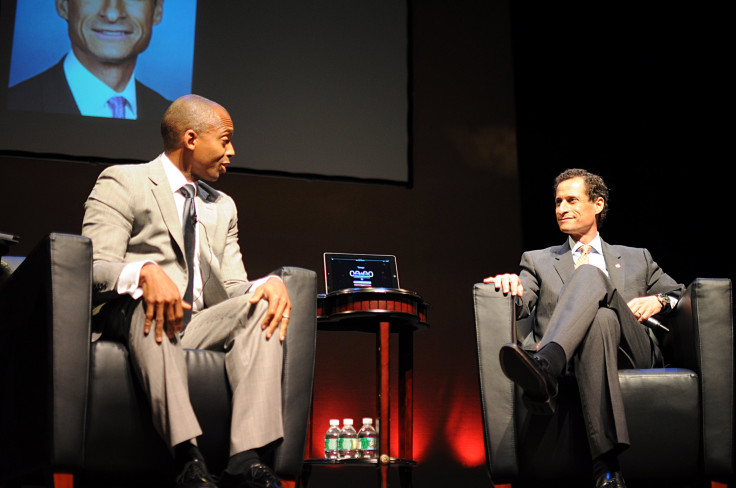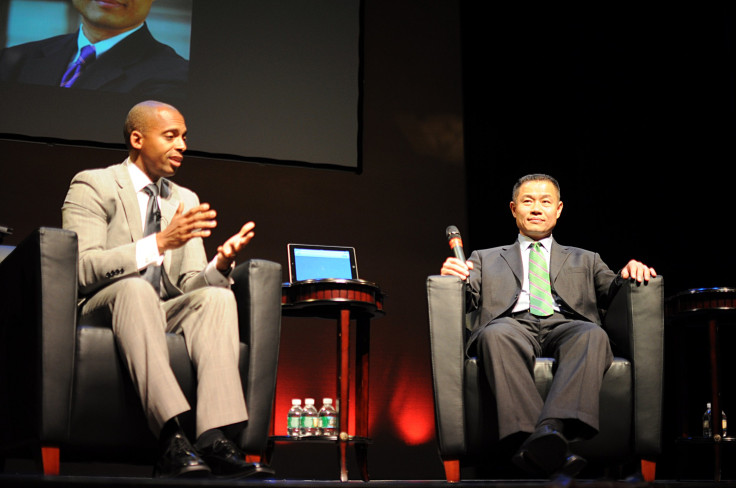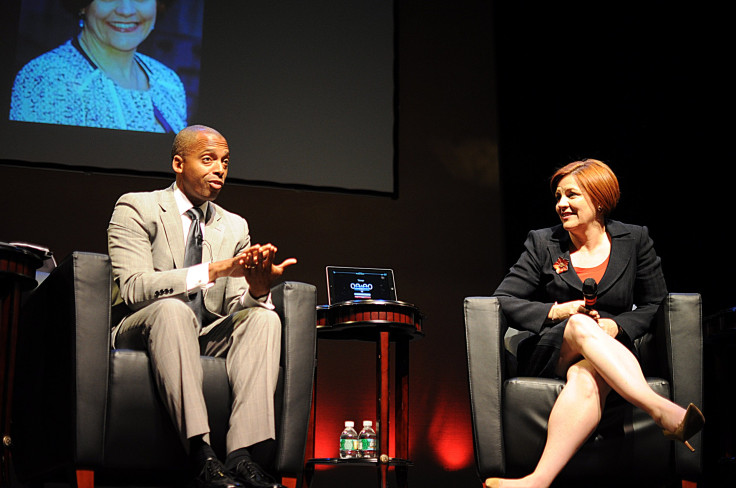NYC Mayoral Candidates Discuss NYPD Policy In Harlem, But Night Belongs To Crowd And Fringe Candidates
Several New York City mayoral candidates, including City Council Speaker Christine Quinn, considered the frontrunner, and former Rep. Anthony Weiner, were on hand Wednesday to discuss the controversial stop and frisk policy and reforming the New York Police Department. While the forum focused on serious issues, there was still an element of the absurd throughout the night.
The Schomburg Center in Harlem was the site of the mayoral forum organized by Police Reform Organizing Project, or PROP. The candidates were invited to discuss NYPD policies such as stop and frisk, marijuana reform, prison and inmate re-entry concerns, law enforcement tactics and police in the school system.
The open forum created a platform that let the "serious" candidates and the fringe candidates share the limelight. The discussion led to some less-than-serious statements and put the idea of running for mayor, especially mayor of New York City, into perspective.
The first three candidates who spoke were little known and would be considered fringe figures by most. Anthony Gronowicz railed against Mayor Michael Bloomberg, NYPD Commissioner Ray Kelly and the stop and frisk policy. His assertion that the policy was meant to intimidate the black and Latino youth, and calling Bloomberg a monster, pleased the audience.
Cecila Berkowitz stumbled during her time on stage, hesitant to answer questions and at times unable to clearly present her policies; the audience quickly turned on her and demanded she get off the stage. Her first big mistake was referring to Bloomberg as a "very good friend." The crowd immediately grew skeptical and she ended her time reading a prepared speech.
While Gronowicz may have been considered to the left, activist-comedian Randy Credico is even further out there. Credico, admitting he has no chance of elective to office, spent his time raising concern over several issues. Credico termed Kelly a modern-day J. Edgar Hoover while describing NYPD officers as “slave catchers” from Long Island who are on steroids. Credico also had stern words for two of his rivals, saying Weiner's support of the Patriot Act, twice, led to a surveillance state while Quinn has a history of supporting racist judges.
Of the early candidates, Credico and Gronowicz were the audience favorites. Credico provided several impressions, including a Spanish-speaking Bloomberg, Rudy Guiliani and Louis Armstrong, while Gronowicz sounded off on unfair policies, calling New York the most unequal city in the United States. The audience was at times vocal and bordered on rowdy, making for a lively affair. Many cheered all attacks on NYPD policies, Kelly or Bloomberg. For the serious candidates, they were respectful, with only one person trying to force Quinn to clarify her stance on replacing Kelly as commissioner.
Weiner, the late entry in the race, was the first big name to discuss NYPD policies. He said stop and frisk, as a policy, was not the problem, just the execution of it. A change of police commissioner would help lead to those changes to make the policy effective, he added. Weiner also came out against a federally appointed monitor, which could happen if the NYPD loses a stop and frisk lawsuit, believing that the problem should be addressed within the department.

Other issues addressed by Weiner, who appeared relaxed and came across as charismatic, included the need to create a school safety division separate from the NYPD, putting resources into communities where ex-offenders return to society, and preserving the middle class with the creation of new jobs.

City Comptroller John Liu, who followed Weiner, discussed ways to integrate the NYPD into the community to build trust, while also saying stop and frisk was simply racial profiling. Prisoners should receive education and job training, he said, and prison should serve as well as an opportunity center to give second chances.
Liu also addressed the hypocrisy of condoms being used as evidence of prostitution. An individual carrying a condom could be arrested on the suspicion of being a sex worker, but new legislation would prevent condoms from being used as evidence. Liu noted that as a public health policy, free condoms are given out throughout New York City, and possession should not, indirectly, lead to the arrest of innocent individuals. As an immigrant, Liu believes education is important and wants schools to serve as community centers while education should start as early as the age of three, with federal support, to give access to all children.
Bill Thompson, a former comptroller, was welcomed by moderator Dr. Khalil Muhammad as a friend of the Schomburg Center, where he has appeared on numerous occasions. He took some time to discuss the need to improve the library system in New York. Thompson argued for more hours and a budget that would let libraries serve the community, calling libraries a necessity. Thompson also discussed the need for job opportunities for the black community and said Bloomberg’s “NYC Young Men’s Initiative” was inadequate to address black youth unemployment.
Much like the other candidates, Thompson believed several NYPD policies needed to be reformed but said that if elected mayor he would keep Kelly as commissioner. Within the schools, he said, principals and educational leaders should have the final say, and children should not be arrested and get a criminal record before their life truly starts.

Christine Quinn was the final speaker of the night and seemed poised on certain issues while also admitting that she needed to do more research on certain subjects. Quinn stood by her support of an inspector general to monitor the NYPD. But if a jury rules in favor of a class-action lawsuit against stop and frisk and a federal monitor is appointed, she said she would work with him or her.
Quinn said she's confident that the inspector general bill will become law and that she has enough votes to override any veto from Bloomberg. Stop and frisk does not work, according to Quinn, and needs to change. Quinn, a lesbian and former gay rights activist, appeared strongest when discussing issues concerning the LGBT community and housing concerns. She discussed the formation of a LGBT advisory board as well as her record as speaker passing eight on-time budgets. Quinn also touted a plan to reform shelter policies for the homeless with the creation of a voucher program.
The other major Democratic candidate, Public Advocate Bill de Blasio, was absent.
While Quinn, Weiner, Thompson and Liu were well-received as they mostly reiterated previous positions, the night belonged to the lesser-known candidates and an audience who thrilled to anyone not associated with Michael Bloomberg.
© Copyright IBTimes 2024. All rights reserved.








